Today I’d like to offer some gift suggestions for the herp enthusiasts on your holiday shopping list. I’ve made my choices with younger folks and novices in mind, but all are useful to long-term keepers as well (indeed, we dinosaurs often stick to “ancient” products and ignore new innovations!). I believe that the products I’ve highlighted are important because they will start hobbyists thinking about concepts that are often overlooked early-on, such as water quality, temperature gradients, UVA, dietary variety and reading materials. Some of my recommendations will need to be fine-tuned to fit individual species. Please post below and see the linked articles for further information, and be sure to add your own thoughts and gift-giving suggestions.
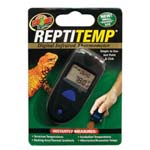 Hygrometers and Thermometers
Hygrometers and Thermometers
When I first began using sophisticated testing equipment in zoos, I was surprised to discover how widely humidity and temperature levels can vary within even small exhibits. Back then, hobbyists were pretty much limited to aquarium thermometers and the like. Today, pet owners have a wide assortment of professional-quality hygrometers and thermometers from which to choose.
The Zilla Humidity and Temperature Digital Gauge features separate probes for temperature and humidity that attach to glass via suction cups. Their 59-inch-long wires allow for remote sensing in quite large terrariums. Smaller, simpler models, such as the
The Zoo Med Dual Humidity Gauge and Thermometer is quite inexpensive yet accurate in both damp and hot conditions.
My favorite new product in this area is the Zoo Med ReptiTemp Digital Infrared Thermometer, which provides a digital temperature reading when pointed at a target. When I first began using earlier models in zoos, I knew that the concept would revolutionize herp care (lacking any sort of business acumen, however, I was not able to capitalize on that “revelation”!). This remote-sensing tool is especially valuable in helping to establish the temperature gradients (areas of cool and warmer temperatures) that are critical to good health.
Zoo Med ReptiSafe Water Conditioner
Aquarists have long paid careful attention to water quality, but amphibian and reptile keepers have lagged behind in this area. But ammonia poisoning is, in my experience, the primary cause of death for many amphibians, including such robust species as African Bullfrogs and Horned Frogs. While aquatic reptiles may seem more resilient, Soft-shelled Turtles and others are likely affected by chlorine levels, and all become susceptible to parasites and disease when ammonia levels spike. Zoo Med ReptiSafe Water Conditioner instantly removes chlorine, chloramines and ammonia, and helps to replace the mucus-coating on amphibian skin (note: removing ammonia does not eliminate the cause of the problem). It is safe for use with amphibians, reptiles, crabs and arachnids.
Combo Light Hoods
I and other herp-keepers of my generation have been battling rats’ nests of wires above home terrariums and zoo exhibits for decades. With each new advance in lighting technology – “black” light”, UVB and so on –came a new fixture. Combo hoods allow us to keep UVA, UVB, heat and night (red/black) bulbs in one place. The movable sockets and integrated timers included in some models increase our ability to establish thermal gradients, day/night cycles and “dawn/dusk” periods.
I especially favor the Zoo Med Combo Reptile Hood and the Zilla Combo Light Fixture; please see the article linked below for details on these and related products.
Exo-Terra Knock-Down Terrarium Stand
This sleek piece of furniture is an ideal gift for those who wish to integrate their terrariums into the household décor (or who must do so in deference to partners or parents!). The doors of the top storage drawer fold out to form a convenient work space.
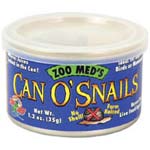 Canned Insects and Snails
Canned Insects and Snails
As my regular readers are tired of hearing, I’ve long stressed the importance of adding variety to most reptile and amphibian diets. Canned snails, grasshoppers, silkworms, and other invertebrates provide a convenient means of starting down this path. Feeding tongs will be useful for those species that accept live prey only.
Exo-Terra Rainforest Habitat Kit
This kit is an ideal gift for youngsters just starting out in our hobby, or for experienced adults seeking a professionally-designed habitat. Most importantly, novices will be introduced to herp-keeping on an advanced level, because the kit contains thermometers, hydrometers, UVB options and other “fine points” that are easily over-looked by enthusiastic beginners.
Books, Blogs and Professional Organizations
I love to give and receive books as gifts. I favor the Barron’s guides, and was pleased to write 2 books in that publisher’s pet-care series.
For the serious keeper, a subscription to one of the leading professional herpetological journals is hard to top as a gift. The Journal of Herpetology is my favorite, but Copeia and Herpetologica are also excellent. Please see the article below for links to each.
Further Reading
Reptile Lighting: Combo Hoods and Strips
 That Reptile Blog – Reptile, Amphibian and Exotic Pet Care and Information
That Reptile Blog – Reptile, Amphibian and Exotic Pet Care and Information

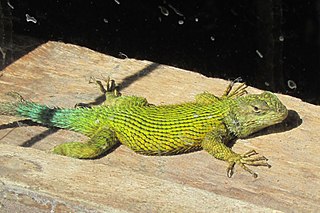
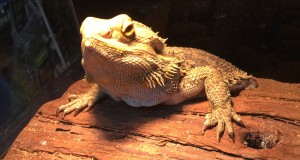
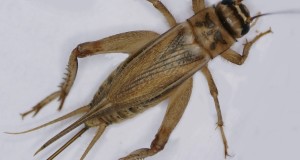
Thanks for the great ideas! Now if anyone asks what I want for Christmas, I can tell them canned bugs! (And give them this link, of course.) 😉
Thanks…we’re an odd group, but we do enjoy such things! Best, Frank